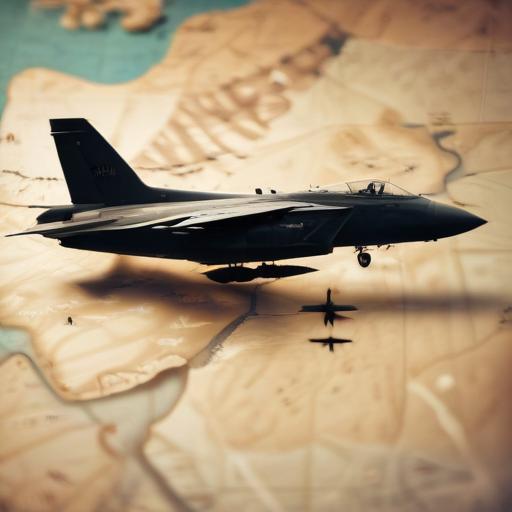Tensions between Israel and Iran escalated dramatically last Friday, marking one week since the outbreak of hostilities. The conflict has drawn the attention of U.S. President Donald Trump, who is deliberating over possible American military involvement. In a significant diplomatic effort, top European diplomats met with Iran’s foreign minister in Geneva, aiming to facilitate a peaceful resolution to the ongoing crisis.
Trump announced a two-week delay in his decision regarding U.S. military participation in Israel’s air campaign, hoping to allow time for diplomatic negotiations. Should the U.S. decide to engage, its focus would likely be on Iran’s fortified Fordo uranium enrichment site, which can only be penetrated by specialized American “bunker-buster” bombs.
As Israeli Prime Minister Benjamin Netanyahu emphasized the severity of the situation, he declared that Israel’s military operations would persist “for as long as it takes” to counter what he deems an existential threat from a nuclear-capable Iran.
The conflict, which ignited on June 13, 2025, has seen unprecedented military action between the two nations. Israel executed a widespread campaign utilizing fighter jets and drones aimed at critical Iranian nuclear and military infrastructure. Targets included missile production facilities and military command centers, leading to significant civilian casualties, with Iran’s health ministry reporting at least 224 dead and over 1,200 injured. Israel contends that they have destroyed one-third of Iran’s missile launchers and achieved comprehensive air superiority over Tehran.
Iran retaliated with missile and drone strikes against Israeli cities, resulting in at least 24 deaths and hundreds of injuries, including attacks on key infrastructure like an oil refinery in Haifa. The Israeli Defense Forces (IDF) reported successful interceptions of more than 100 Iranian drones.
Amid this turmoil, global calls for de-escalation have surged, with leaders from China, Turkey, and the G7 expressing urgent concerns. Despite these appeals, both Israel and Iran remain firmly entrenched in their positions. Netanyahu has not excluded the possibility of targeting Iranian Supreme Leader Ayatollah Ali Khamenei, suggesting that such an action could potentially resolve the conflict. Meanwhile, the UN’s International Atomic Energy Agency (IAEA) has reported damage to Iran’s Natanz uranium facility, while indicating that radiation levels remain normal.
The situation remains dire, with planned nuclear negotiations between Tehran and Washington postponed indefinitely, raising concerns about future diplomatic avenues. The increasing militarization of this conflict signals a troubling trajectory, overshadowing efforts for peace. The international community’s engagement may prove vital in fostering dialogue and preventing further escalation.
